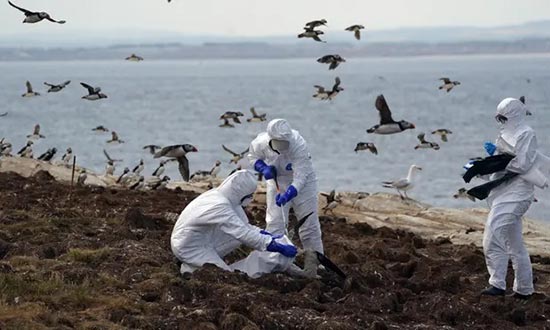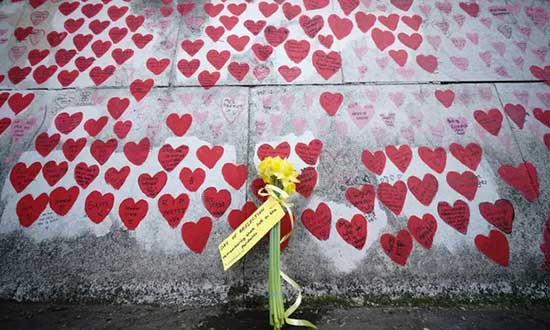This article was originally published here.
Sir Jeremy Farrar helped Fauci cover up the origin of COVID, was central in the Recovery and Solidarity trials that overdosed 2600 patients with hydroxychloroquine, now heads to WHO for world takeover.
So it is good to read between the lines and see what his forked tongue has to say — what narratives is he pushing now? Full text with comments below.
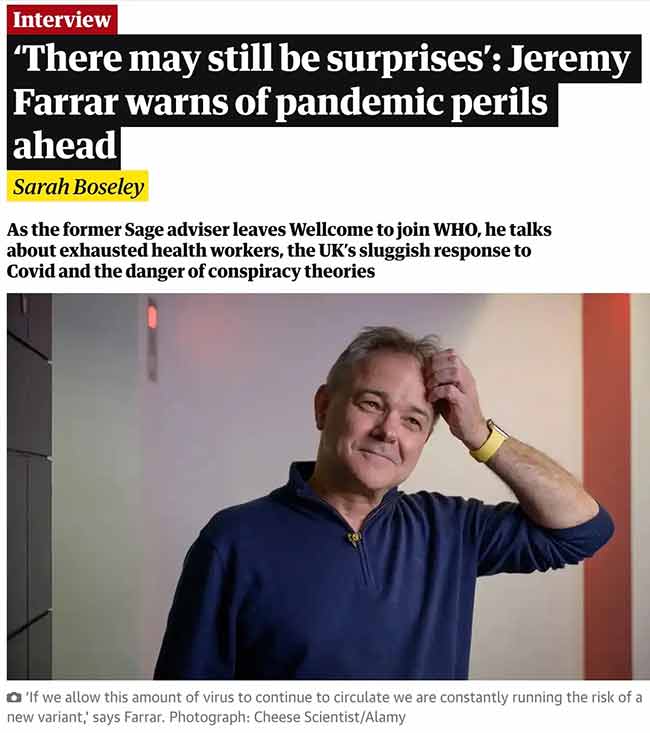
‘There may still be surprises’: Jeremy Farrar warns of pandemic perils ahead. [He is asking for $3.5 Billion for CEPI to develop pandemic vaccines, and $100-200 Billion for pandemic preparedness, and a 15x increase in the WHO budget — you bet he’s gonna warn us about surprises and tell us he can buy us safety. — Nass]
Sarah Boseley
As the former Sage adviser [SAGE advised the UK government on imposing lockdowns and all the other incursions into our rights. — Nass] leaves Wellcome to join WHO, he talks about exhausted health workers, the UK’s sluggish response to COVID and the danger of conspiracy theories. [Here is one: this guy is a spy and so was his dad. — Nass]
Masks are a rarity now on streets and trains. We don’t leave empty seats in theatres or limit how many people browse in our shops. It seems like it’s all over — but Prof Sir Jeremy Farrar, director of Wellcome, once a key member of the government’s scientific advisory body Sage and an enormously influential figure in global health, says the COVID pandemic could still have unpleasant surprises in store.
Farrar is not a doom-monger. But from where he is sitting, with long experience of epidemics from flu to Sars to Ebola, we are still in a risky place. We need to be ready for what this — or quite possibly another — bug could do to us.
“I would be less sanguine that the pandemic is over. I think the overwhelmingly likely scenario is we are in a completely different place and it’s much better. The world has immunity now, largely. But there may still be surprises in this pandemic,” he says.
Speaking to the Guardian as he prepares to leave Wellcome — he is to become chief scientist of the World Health Organization — Farrar explains how China’s zero-COVID policy has been his biggest concern over the past year. It was never sustainable. China, in his view, will go through a series of waves of infection now that restrictions have been lifted.
“They’re going through a horrible wave at the moment. I don’t think there’s full transparency about cases or about deaths or about the impact of that.”
Meanwhile on the streets of the UK and in every other country, COVID transmission is extremely high. The Office for National Statistics says one in 55 people in England has the virus.
We need new vaccines that actually stop infection, he says. [Send us money. He was involved with so many expensive endeavors that failed to find drugs for COVID, it seems his ilk figured out that you lose a lot of money if you find a cure. — Nass]
“We are not in a good enough position to be sure this is not coming back until we can get transmission-blocking vaccines. And I don’t know if they’re possible, but I think the ambition should be there by the end of this decade or as soon as possible.”
“I think if we allow this amount of virus to continue to circulate we are constantly running the risk of a new variant.” [Here he tries to mislead, since variants are constantly forming, and the vaccines he pushed actually helped select for vaccine-resistant variants.]
And, he warns, “this COVID pandemic doesn’t stop any other virus emerging.” What comes next may not be a twist in the coronavirus tail.
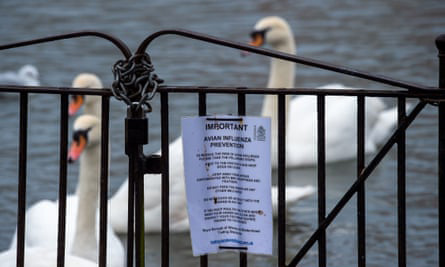
It could be influenza. Just because we have had scares that turned out to be false alarms in the past doesn’t mean flu is not something to fear. It really is. [Be very afraid.]
H5N1 has been circulating among wild birds in the UK since 2021, and has infected poultry, which have to be kept indoors as a result. The virus has jumped into wild animals such as foxes and otters and a few poultry farm workers in Europe have tested positive, although without symptoms. [In other words, probably false positive tests. But you never know, it could decide to kill us. — Nass]
“The current pandemic of avian H5N1 is a really concerning issue,” says Farrar. “You want to be really sensible and calm about it — you’re not saying the world is suddenly going to face an H5N1 pandemic tomorrow and it’ll be devastating.”
Yet it’s a worry. Historically, he says, of the hundreds of people who have been infected with the virus, 30% have died.
“We’re not going to face that scenario, I don’t think, but if we allow an avian virus to which none of us has got any immunity to continue to circulate in birds and then increasingly, whether it’s minks or seals, come across into the mammalian sector and therefore start to adapt, there’s a risk there. You can’t quantify it. But we don’t have an H5N1 vaccine tomorrow ready to go.”
[But CEPI, which Sir Jeremy Farrar founded, promises to give you a vaccine in 100 days. They don’t promise safety, efficacy or shouldering any liability, but they are ready and waiting to inject you with something. — Nass]
Farrar’s concern is that the UK and the world should be ready for whatever the microbial world is going to throw at us. The time to think of how to prepare for a COVID pandemic was not 31 December 2019 after 20 years of underinvestment in public health. [I don’t know about the UK, but the US spent roughly $150 Billion on pandemic preparedness since the anthrax letters, and we had nothing ready whatsoever when COVID erupted or was deliberately thrown at us. — Nass]
Given what we’ve been through since then, we should have everything we need in place. There have been breakthroughs. Wellcome supported the trialling of the first Ebola vaccine during the epidemic of 2014 in west Africa. [Ebola vaccine was used in the 2018-19 Ebola epidemic in the Congo (DRC) and had no impact — in fact, the 60% mortality was higher than previous Ebola epidemics. — Nass]
Now it is accepted that research can and must be done in a pandemic. The Recovery trial based in Oxford was set up as the UK locked down for the first time in March 2020 and quickly found treatments for COVID. [I hate this quack because he is a medical doctor and he deliberately killed people to prevent HCQ being used for COVID, overdoing 1591 patient subjects of whom 396 died in the UK alone. He was rewarded with an OBE. — Nass]
But our healthcare workers are not ready. They are exhausted and feel undervalued. Strikes in the UK are a sorry part of that story.
“This is a global issue, which I think is hugely concerning,” he says. “It’s certainly true in this country. The resilience of healthcare workers, broadly defined from ambulance drivers to nurses to doctors, to care workers in social care, etc. They’re shattered. They are absolutely shattered.” [Maybe in part because they were forced to use the useless and harmful treatments and vaccines you and your buddies forced on them? — Nass]
Farrar, 61, who spent 18 years leading the clinical research unit at the Hospital for Tropical Diseases in Ho Chi Minh City in Vietnam, has been through many epidemics.
“You can cope with it for a certain amount of time. But if that becomes the norm, over the months and years while you are also frightened yourself personally … and your family’s sick … The resilience in healthcare workers around the world is really thin at the moment, and people are leaving those professions. Just to go back to delivering non-pandemic healthcare is going to be a huge challenge.”
It’s all about people, he says. Suppose there is what he terms “another event” in the next five to 10 years. “If you stretch people beyond their resilience they won’t be there when you need them,” he says.
“I think we have to address the morale, staffing, the training, everything from public health physicians to care workers, to doctors and nurses and physios and everybody in between because there’s very little spare capacity in any system globally.”
“It’s particularly true in the UK. As you can see from the strikes, morale and resilience is very thin.” We can’t rely on stealing those who have trained in the Philippines, Ghana or India, who are needed in their own countries, he adds.
In his book Spike, published in July 2021, he was highly critical of Boris Johnson’s government’s handling of the pandemic and its sluggish response to COVID.
He singled out for special condemnation the test, trace and isolate system led by Dido Harding and the dismantling of Public Health England (Harding was initially given charge of its replacement body, the National Institute for Health Protection, which later became the UK Health Security Agency).
Johnson himself, with his “absence of political leadership” in the early weeks and backing for those who touted theories that herd immunity would free the UK from the virus, and the then health secretary, Matt Hancock, come off badly.
Farrar thought about resigning over the failure to lock down in September 2020 and talks of a moral dilemma: “Does staying in an advisory role mean being complicit in the outcomes of bad decisions?”
He adds: “To be honest, I still don’t know the answer.” He wrote of the “carnage” of January and February 2021. “Many of those deaths were preventable,” he wrote. [Right. Withhold the drugs they need, lock them down over and over, and blame others when your policies predictably kill a lot of people. Great job, Sir Jeremy. — Nass]
Wellcome has a huge endowment worth £38bn, up from £15bn when he became director in October 2013. [Pandemics pay. — Nass]
Politico called him the Bill Gates of Europe, but Farrar points out that it’s not his money. He says there are issues around the roles of philanthropy versus government. “Philanthropy shouldn’t allow governments to get away from their responsibilities,” he says. It must be a complementary relationship.
Like other leading scientists — Anthony Fauci in the US, for instance — he has been targeted on social media. He and his children have been subjected to death threats. “It’s intimidating. You try not to be, but when it starts to involve not just you but also your family members and some degree of protection, it’s a terrifying place to be in.”
Moving to the WHO in Geneva will not protect him from that. There was sniping when his new role was announced from those who claimed he tried to stifle debate about the origins of the virus, publicly supporting its natural emergence from animals while his private emails showed him discussing whether a lab leak was possible.
[The Guardian veers from the truth here. Jeremy Farrar organized the phone call with Fauci and about a dozen other people, including 1 or 2 others from Wellcome, in which they decided how to organize a coverup of the origin, and tasked Kristian Andersen and others to write a paper insisting it could not have been created in a lab. Wellcome staff helped write it anonymously, but were listed in a press release from Scripps, where Andersen works, which is how I found out.
I wrote about their bogus paper soon after it was published, in March 2020, pointing out that it was a coverup. I wrote followup pieces in April 2020 and a very useful summary piece June 2021. Below is an email from Andersen thanking Sir Jeremy Farrar, Fauci and Francis Collins for their leadership and assistance on the coverup paper for which Farrar was the midwife. — Nass]
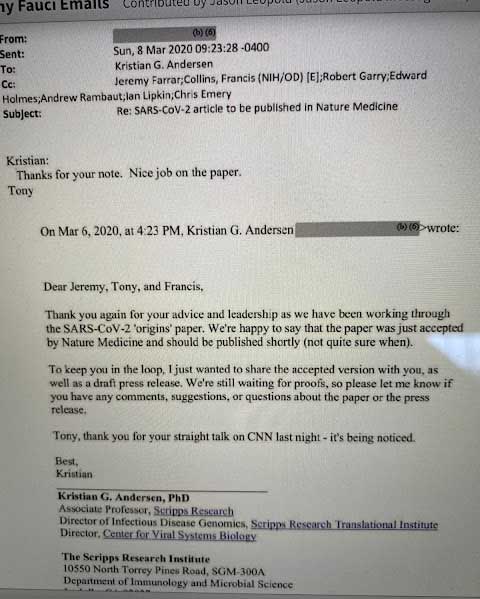
Farrar’s position is that while it is likely to have come from animals, it is important to stay open-minded and gather evidence. Above all, we need transparency, he says. [Ho Ho Ho! — Nass]
There is a responsibility on scientists to speak out or they will leave a vacuum for others, he adds. “That would be a very dark place to be. Conspiracy theories may be amplified now. They may get more airtime through whatever vehicle but there have always been conspiracy theories. This is not a total 21st-century phenomenon. And in the main, I think humanity works through them and comes out into better places, but it doesn’t do that by chance.”
[No, that is why the intelligence agencies attempt to control every narrative, and you are the UK’s Fauci, always ready with a quip that sounds good, who never takes any responsibility for anything, and invariably misdirects. — Nass]
His role at the WHO is relatively new and yet to be defined. Farrar is optimistic about what could be achieved with the help of science, even at this time of wars and suspicion and economic crisis.
World leaders may not be able to agree on ways to bring down inflation, “but there are some things you can agree on. And you can agree, whether you’re sitting in Beijing or Washington or Geneva or Delhi or Prague or Rio de Janeiro, that climate affects you all.” [One globalist narrative after another. He is so predictable. — Nass]
Science has got a role to play in tackling the climate crisis, in drug resistance, pandemics, in mental health and in the more equal manufacture and distribution of drugs and vaccines.
[They want us to believe the climate is a crisis; he mentions drug resistance because that is a subject hijacked by One Health to help get One Health inaugurated globally; pandemics we must fear; mental health is being hijacked to control us; and they want drugs and vaccines manufactured in developing nations, where there is even less oversight. — Nass]
He hopes he’s not being naive or over idealistic, but I hope the world could say, ‘Look, I can’t necessarily agree on this trade deal or where balloons fly or the South China Sea. These are deeply historic and sensitive issues. But maybe we can agree on these other things. And why don’t we start working on those?’ [All those issues play a role in the WHO taking over world sovereignty. — Nass]
“Can you use science to enhance green shoots diplomacy? I wouldn’t be doing it unless I thought you could. Because otherwise we’re in danger just at a time when the world does face these global existential crises.”
“If we do revert to a lack of evidence, a lack of information — if we’re going back to the era where we’re just making policies up with no evidence behind them, the world is in a worse place. And we’re moving away from an era of sort of 20th-, 21st-century enlightenment to something darker.
And we can’t let that happen.” [Yet he was one of those at the forefront of imposing policies with no evidence behind them. Don’tcha love how spies have been trained to so glibly twist the truth? — Nass]
This article was amended on 20 February 2023 to clarify that the National Institute for Health Protection later became the UK Health Security Agency.
Views: 6
Comments are closed for this blog post
© 2025 Created by carol ann parisi.
Powered by
![]()

